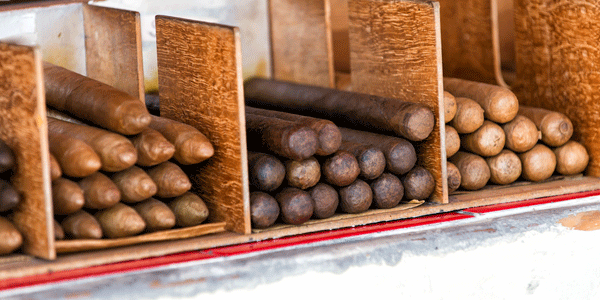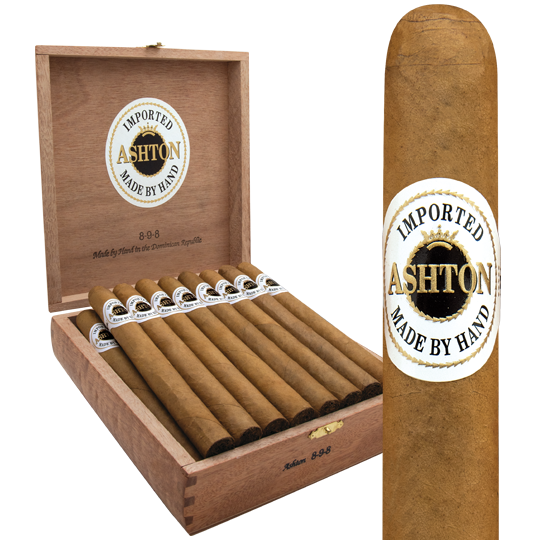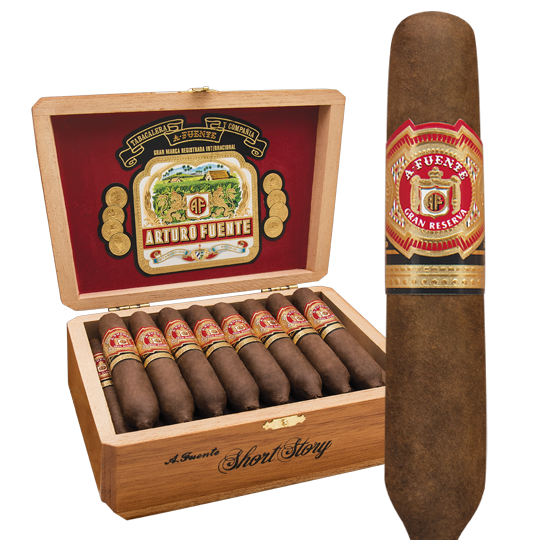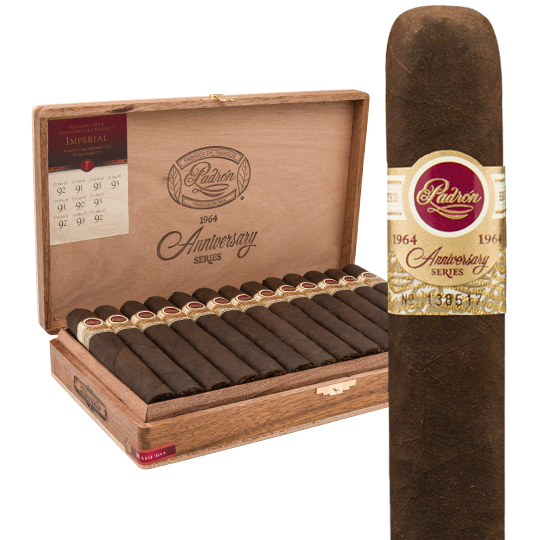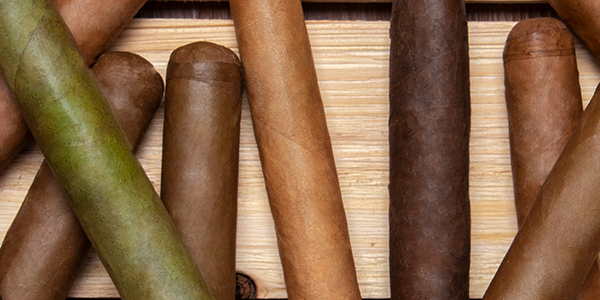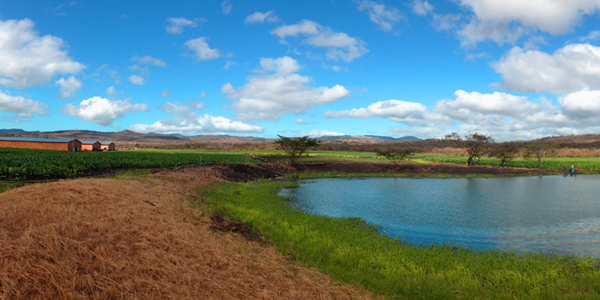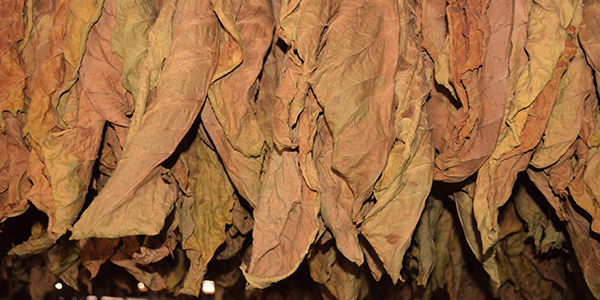Natural vs. Maduro
A cigar’s wrapper is critical to its taste, strength, appearance, and price. There are several ways we classify a cigar’s wrapper, including the country or region where it’s grown, the part of the tobacco plant it’s harvested from, and the seed varietal of the plant. Wrapper leaves also fall into one of two categories: Natural and Maduro. These broad categories provide insight into a cigar’s blend, but they don’t tell the whole story. Here’s what to know about the differences between Natural and Maduro cigars.
Color
In a broad sense, Natural and Maduro characterize a cigar’s color. Natural is light; Maduro is dark. “Maduro” means “mature” or “ripe” in Spanish. Most Maduro cigars are on the darker side, ranging anywhere from a dark, oily brown color to a jet-black hue. Not all Natural cigars are exclusively light in color, however. The seed varietal and region where the tobacco is grown can result in a Natural cigar being darker, such as with Ecuador Habano and Cameroon wrappers. These wrappers are not dark like traditional Maduros, but they’re also not the golden-blond color we associate with most Natural wrappers, such as a Connecticut Shade wrapper. Natural can refer to a wide variety of cigars that are simply not classified as Maduro.
The Process & The Region
Maduro wrappers are more the result of how the wrapper is fermented than simply a color designation. Wrappers grown in any region can be processed as Maduro, but the two most common tobaccos used for Maduro wrappers are Connecticut Broadleaf, grown in the Connecticut River Valley, and San Andrés, from Mexico’s Veracruz region.
Maduro wrappers are traditionally stalk cut, meaning the whole tobacco plant is cut at the stalk near the dirt, and the plant is left to wilt in the sun for an hour or two, making it easier to handle. The alternative to stalk-cutting tobacco is priming, which is more labor-intensive, as individual leaves are removed from different sections of the plant, starting at the bottom and working up, over a period of days.
Natural wrappers are grown in many different regions in the U.S., Central America, the Caribbean, and South America, but the two most common wrappers we identify as “Natural” are Connecticut Shade and Ecuador Connecticut. Both are prized for their golden-blond color and impart mild, nutty, and creamy flavor.
Flavor
Not all Maduro cigars are strong, and not all Natural cigars are mild. The binder and filler tobaccos impact a cigar’s taste along with the wrapper leaf. Maduro wrappers generally are sweeter because the sugar rises to the surface of the leaf during fermentation. The best way to understand the difference between Natural and Maduro cigars is to smoke one of each from the same brand to taste the differences. Here are three iconic Natural and Maduro comparisons to try.
Ashton Classic vs. Ashton Aged Maduro
The world-renowned Ashton portfolio was founded on two cornerstones: Ashton Classic and Ashton Aged Maduro. Both cigars are blended by Carlito Fuente from premium tobaccos matured for perfect flavor and aroma. In this comparison, you can taste two quintessential Natural and Maduro wrappers: Connecticut Shade and Connecticut Broadleaf.
The Connecticut Shade wrapper on Ashton Classic is harvested from plants grown under nylon mesh that filters the sunlight as the tobacco grows, resulting in a lighter blond color. These wrappers are especially silky – and expensive. Labor, of course, is more expensive in Connecticut, than in other tobacco-producing countries. And the sunlight is less intense in the northeastern U.S. than along the equator, which also contributes to the lighter wrapper color when the sunlight is filtered. Ashton Classic cigars exude a magnificent profile of cedar, cashew, coffee bean, and almond tasting notes.
The Connecticut Broadleaf wrappers blended in Ashton Aged Maduro cigars are thicker and coarser, making them ideal for the three-year fermentation this Maduro wrapper undergoes – a process that requires a heartier, more resilient leaf due to the heat the wrapper is subjected to. Ashton Aged Maduro cigars impart smooth notes of dark chocolate, molasses, almond, maple, and black pepper.
Arturo Fuente Hemingway vs. Arturo Fuente Hemingway Maduro
With Arturo Fuente Hemingway (Natural) and Arturo Fuente Hemingway Maduro, you’ll taste the difference between an authentic Cameroon wrapper (Natural) and a Connecticut Broadleaf (Maduro). Both blends are handcrafted in a collection of impressive Figurados drawn from the finest Dominican long-fillers blended by renowned cigar-maker Carlito Fuente.
The original Arturo Fuente Hemingway is finished in an oily Cameroon wrapper and imparts notes of chestnut, cedar, cinnamon, and baking spices. Famous sizes like the Short Story, Signature, and Classic are among the bestselling Figurados in the world.
Arturo Fuente Hemingway Maduro reveals a succulent profile of dark cocoa, maple, and molasses with hints of leather and anise. The Work of Art is an especially popular shape in this rare and critically acclaimed blend.
Padrón 1964 Anniversary vs. Padrón 1964 Anniversary Maduro
Experience the difference between Natural and Maduro in the award-winning Padrón 1964 Anniversary line. The Padrón portfolio is loaded with some of the highest-rated Nicaraguan cigars in both Natural and Maduro wrappers. Beneath each type of wrapper is a blend of premium Nicaraguan long-fillers aged for several years before they reach the hands of a master cigar roller who meticulously assembles every size.
In the Natural blend, notes of cocoa, cedar, nougat, and leather mingle with hints of cayenne and cinnamon. This box-pressed collection is mandatory when you’re exploring today’s best Nicaraguan cigars.
In Padrón 1964 Anniversary Maduro, a sweeter profile of dark chocolate, coffee bean, and cedar emerges with a good amount of pepper too. Padrón cigars look as impressive as they taste thanks to the company’s uncompromising standards for quality, consistency, and flavor.
Shop the Best Natural and Maduro Cigars
We have hundreds of the best Natural and best Maduro cigars you can buy today. Check out our recommendations when you’re adding new cigars to your humidor or you’re in search of old favorites.

